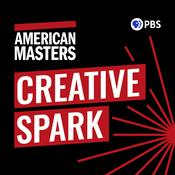Singer-songwriter Sarah McLachlan says, “we need opportunities to feel connection and to feel less alone.” For her, music is the salve. The three-time Grammy Award winner is back with her tenth studio album, Better Broken. Amidst our tense collective cultural moment, McLachlan aims to create music that bridges divide.
In this episode, Sarah McLachlan talks about touring between Canada and the United States and finding common ground with people from all walks of life. We explore the lasting impact of Lilith Fair, the all-women music festival she founded in the 1990s, which featured artists like Sheryl Crow, Jewel, Fiona Apple, Tracy Chapman, and more. McLachlan also shares the influence of Peter Gabriel on her sound, details her own songwriting process, and reflects on the challenges of parenting and how she has imbued those experiences into her new single, “Gravity.”



